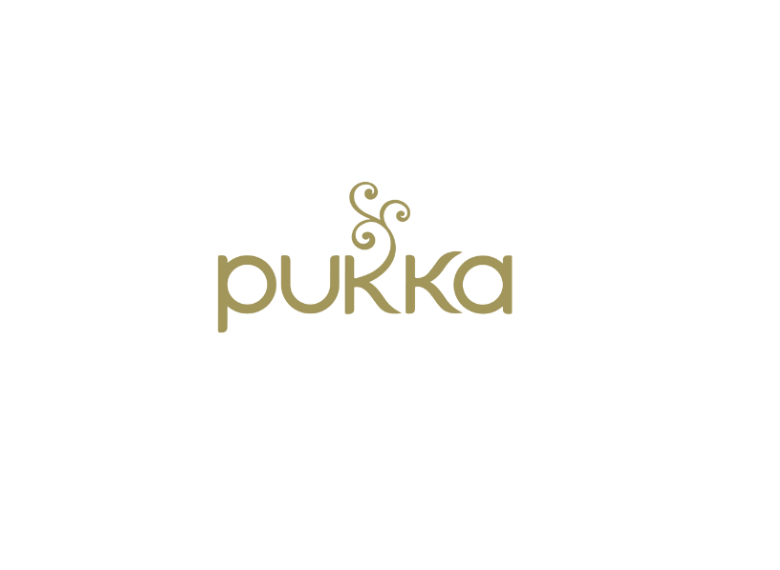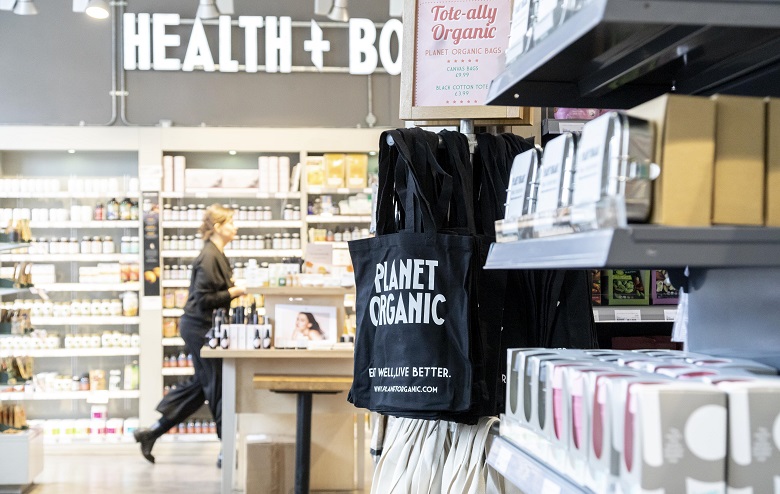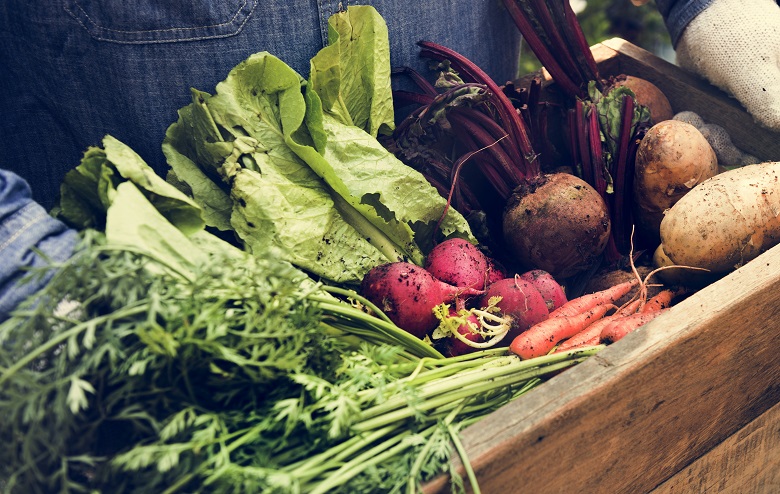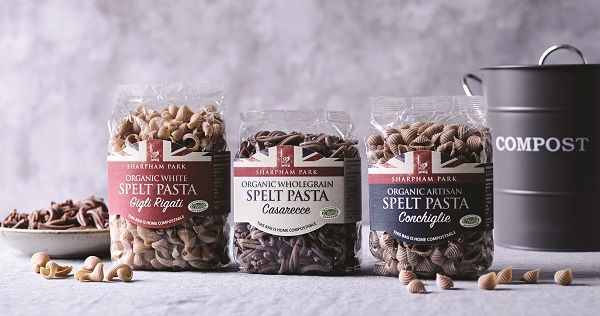Posted by admin on July 22, 2020 · Leave a Comment

Pukka Herbs has added its support to a campaign to stop Facebook advertising in a bid to protest against hate speech and racism.
Pukka joins other brands including Innocent Drinks and COOK, to support the Stop Hate For Profit campaign by pausing paid advertising on Facebook platforms and persuading more brands to join them.
The brands join a growing list of thousands of companies around the world actively removing advertising on Facebook and Instagram in July in protest against hate speech and racism on the social media platforms.
With a combined Facebook and Instagram following of more than 900,000, Facebook helps these household names advertise and reach potential customers. In the absence of advertising on Facebook, by the end of July, the brands will have missed out on a combined reach of over 11m people.
Beyond standing in solidarity with the Stop Hate for Profit campaign, these brands say they are united by their shared passion for using business as a force for good as a Certified B Corporation.
Instead of investing in social media during July, Innocent drinks, Pukka Herbs and COOK are using this time to rally additional support for Stop Hate For Profit from the rest of the B Corp community, which also rely on Facebook and Instagram as an acquisition tool.
Neil Fox, Marketing Director at Pukka Herbs, commented: “We are proud to support the Stop Hate for Profit campaign. As a B Corp, we believe we have a responsibility to use our influence to drive positive change. We are talking to other B Corps too to build our collective voice to inspire the necessary change we hope will come. And we hope other businesses outside of the B Corp community are inspired to put purpose before profit and join this campaign.”
Posted by admin on July 22, 2020 · Leave a Comment

Planet Organic has announced it has achieved Covid-19 safe status to allow it to reopen all of its 15 locations.
The retail chain has revealed that in light of restructuring its offer overnight to meet an increase in demand for its organic food, supplements and vitamins both in-store and online, Planet Organic called on the support of Food Alert to provide food hygiene and health and safety advice.
Following a rigorous site-by-site virtual auditing process by Food Alert, Planet Organic and its recently acquired As Nature Intended sites are now COVID-19 Standard Certified.
Planet Organic’s Food Services Director, Caroline Ottoy, commented: “Like everyone else in retail, our business was turned upside down overnight. Demand for our healthy products rocketed and we had to make sure that we were well positioned to cope and look after the health and safety of our teams and customers.
“The certification scheme has been well received, not only by our 450 employees who know we have done everything we can to make their workplace as safe as possible, but also by our customers who are confident that we are delivering the highest standards possible.”
To gain Food Alert’s COVID-19 safe standard, Planet Organic undertook a detailed risk assessment that covered all the touchpoints that need to be cleaned to the type of sanitiser to use, managing deliveries of stock safely and a staff sign-in questionnaire.
Ottoy continued: “What I found surprising was that Personal Protective Equipment (PPE) was not the most important control, but all the steps that we should take in terms of deep cleaning, physical distancing and task checklists to keep people safe, with PPE being the final link in the chain. We have invested heavily in inserting bespoke till screens and floor vinyls with face masks worn where physical distancing isn’t possible.”
Posted by admin on July 6, 2020 · Leave a Comment

Summer brings with it a distinct shift in terms of the type of beauty products people buy. But with little in the way of summer holidays, and a potential tightening on spending, how can natural and organic retailers adapt to meet current needs?
For every negative news story about the economy, we see a positive. On the one hand, we are likely to see a tightening on spending as the UK approaches recession, yet within the natural and organic market, we are seeing positives.
By way of example, the British Retail Consortium has reported that total UK sales have decreased in comparison to last year, due to continued shop closures caused by the UK’s lockdown; over the three months leading up to May, non-food in-store sales dropped by some 50.3 per cent in total. However, according to the BRC, despite the amount of goods sold in Great Britain falling by 5.9 per cent overall, food sales saw a large increase by 8.7 per cent like-for-like with online sales and supermarket spending also saw some pick-up. Within our market, we have also seen reports that sales of organic food and drink have shown a rise during the Coronavirus lockdown, and according to recent research, the pandemic is also raising demand for natural ingredients from the personal care industry; according to Ecovia Intelligence, the use of ingredients such as tea tree oil, lemon myrtle and aloe vera in cosmetic and personal care products is increasing, whilst consumers are buying natural and organic products to improve their personal immunity. Ecovia Intelligence also noted that demand is expected to remain buoyant after the current crisis.
So, where does this leave the natural and organic beauty sector? There’s no doubt summer spending habits will be altered this year with the dearth of summer holidays, but are there still opportunities to grow your sales in this area?
Posted by admin on June 29, 2020 · Leave a Comment

New data has shown organic sales have seen their highest growth in the last three years.
According to the latest Nielsen data, since January 2020, organic sales in supermarkets have seen the highest growth since December 2016. It was also found that organic food and drink sales year on year recorded growth of 6.1 per cent, almost double the growth of non-organic food and drink products (3.2 per cent) for the 52 weeks ending May 30, 2020. Nielsen data shows an 18.7 per cent increase in organic sales in the 12 weeks ending May 30, which includes 10 weeks of lockdown, compared to 14.2 per cent increase in non-organic food and drink*.
The Soil Association pointed out that this comes at a time when external events have fast-tracked already changing shopper behaviours towards personal health, transparency and integrity; a YouGov survey commissioned by the Food Farming and Countryside Commission and The Food Foundation revealed that 42 per cent of people feel the crisis has made them value food more.
These changing behaviours seem set to support the organic sector in exceeding the end of 2020 market value of £2.5bn projected by Soil Association Certification, with the sector now on track to hit the £2.6bn mark. Products which have seen exceptional demand and outperforming are beef (+15.3 per cent), eggs (+14.8 per cent), preserves and spreads (+18.3 per cent) and sparkling wine (+47 per cent**).
Finn Cottle, Trade Consultant at Soil Association Certification, commented: “As this crisis emerged, and food was placed firmly in the spotlight, it became apparent that consumer habits were shifting: from less frequent shopping trips, to supporting local and independent stores, online shopping to receiving weekly deliveries of organic fruit and veg. What seems clear is that at a time when quality and safety are of importance for consumers, organic ‘stands out,’ with its benefits of transparency and integrity.
“Despite the likelihood of tighter budgets, shoppers are choosing quality, good taste, and ethical options. Sustainability and protecting the environment remains high on their wish list – and with so many of us finding nature a vital source of respite in these difficult times – citizens seem to be making more planet-centric choices.
“Organic brands, retailers and businesses have a huge part to play in reinforcing the credentials of organic – as a farming system ‘working with nature’ to restore goodness in the land, with a positive impact on personal health and wellness, and our environment. With more people than ever understanding this connection, I think the sector has a lot to feel confident about.”
Posted by admin on May 9, 2020 · Leave a Comment

Sharpham Park has announced its British spelt brand has moved its pasta range into home compostable packaging.
Made in the UK by an artisan Italian pasta maker using Sharpham Park’s award-winning spelt flour, the new pasta is ideal for vegans and those following a plant-based diet. The first three shapes in the range are Gigli Rigati, Casarecce and Conchiglie.
Founder, Roger Saul, commented: “We’re delighted to be launching this pasta as it’s taken us a long time to work out the best way to create a delicious tasting premium spelt pasta in an ethical and sustainable manner. Having the pasta manufactured in the UK by an Italian pasta maker has ensured our food miles are as low as possible. We’re delighted to be launching our home compostable packaging, which we believe is the way forward for food packaging and one which we will be utilising throughout our range in 2020.”


 Organic & Natural Business magazine
Organic & Natural Business magazine




